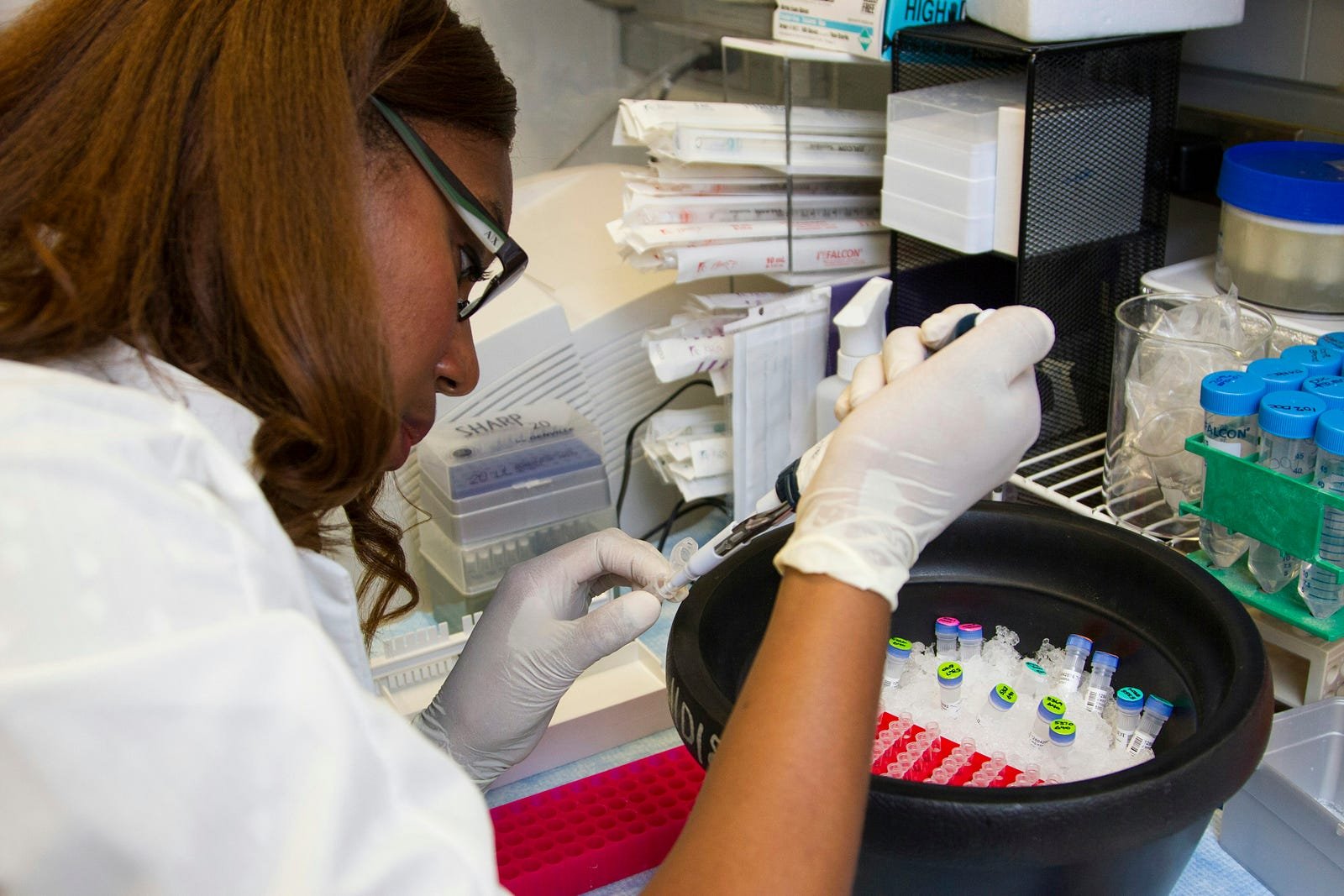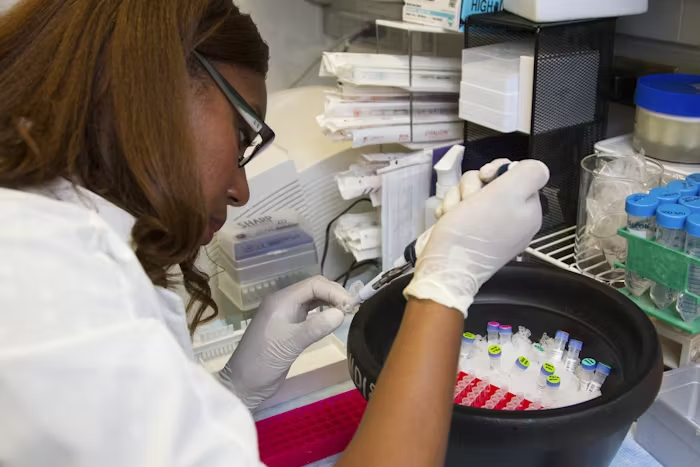Human behavior has fascinated scientists, philosophers, and thinkers for centuries. Why do we act the way we do? How much of our behavior is influenced by our environment, and how much is determined by our genes? Recent advances in genetics and behavioral science have shed light on the profound role our DNA plays in shaping who we are, how we think, and how we interact with the world.
In this article, we’ll delve into the genetics of human behavior, exploring the science behind inherited traits, the interplay between genes and environment, and how understanding these factors can revolutionize fields such as psychology, education, and medicine.
What is the Genetics of Human Behavior?
The genetics of human behavior examines how our genetic makeup influences our actions, emotions, and thought processes. This field combines principles from genetics, neuroscience, and psychology to understand how specific genes — or combinations of genes — impact behaviors ranging from social interactions to decision-making.

Key Terms to Understand:
- Genome: The complete set of genetic material in an organism.
- Genotype: The genetic makeup of an individual.
- Phenotype: The observable traits or characteristics resulting from the interaction of the genotype and environment.
- Behavioral Genetics: A field that studies the influence of genetics on behavior.
The Role of DNA in Human Behavior
1. Genes as the Building Blocks
Our DNA contains thousands of genes, each coding for proteins that influence various biological functions, including brain activity. Some genes play direct roles in behavior by affecting neurotransmitter production, brain structure, or hormonal pathways.
- Example: Variations in the COMT gene, which regulates dopamine levels in the brain, have been linked to differences in cognitive function and stress response.
2. Genetic Predisposition vs. Determinism
It’s crucial to understand that while genetics can predispose individuals to certain behaviors, they do not determine them outright. Instead, genes provide a blueprint, with environmental factors shaping the final outcome.
- Example: A person with a genetic predisposition for anxiety may only exhibit symptoms under specific environmental stressors.
3. Heritability of Behavior
Heritability refers to the proportion of observed behavioral variation in a population attributable to genetic differences. Studies suggest that behaviors like intelligence, temperament, and even risk-taking have moderate to high heritability.
- Twin Studies: Identical twins (who share 100% of their DNA) often display similar behavioral traits, even when raised apart, highlighting the genetic component.
Gene-Environment Interaction: Nature Meets Nurture
One of the most debated topics in behavioral science is the interplay between nature (genes) and nurture (environment). Modern research reveals that behavior results from complex interactions between genetic predispositions and environmental influences.
1. Epigenetics: Turning Genes On and Off
Epigenetics studies how environmental factors can modify gene expression without altering the DNA sequence. Stress, diet, and lifestyle choices can all influence how genes are expressed.
- Example: Childhood trauma can lead to epigenetic changes in genes related to stress regulation, increasing the likelihood of anxiety or depression in adulthood.
2. Environmental Triggers
While genes may lay the groundwork, environmental factors often act as triggers that bring certain behaviors to the surface.
- Example: A genetic predisposition for aggression may only manifest in individuals exposed to a violent upbringing.
Behavioral Traits and Their Genetic Links
1. Personality Traits
Research indicates that personality traits such as extraversion, agreeableness, and conscientiousness have a genetic basis.
- Key Genes: The DRD4 gene, associated with dopamine receptors, has been linked to novelty-seeking and risk-taking behavior.
2. Mental Health and Behavior
Many mental health conditions, including depression, schizophrenia, and bipolar disorder, have genetic components. Understanding these links helps in early diagnosis and personalized treatments.
- Example: Variations in the 5-HTTLPR gene, which affects serotonin transport, are associated with susceptibility to depression.
3. Addiction and Impulse Control
Genes play a role in addiction by influencing how the brain responds to rewards. For instance, individuals with specific variants of the OPRM1 gene may experience heightened pleasure from substances like alcohol or drugs, increasing addiction risk.
The Ethical Implications of Genetic Research on Behavior
The study of behavioral genetics raises several ethical questions, including:
1. Genetic Determinism
There’s a risk of oversimplifying behavior by attributing it solely to genes, ignoring the critical role of environment and free will.
2. Privacy Concerns
Genetic information is sensitive, and its misuse could lead to discrimination or stigmatization.
- Example: Employers or insurance companies might misuse genetic data to predict behavior or productivity.
3. Designer Traits
Advances in genetic engineering could enable the selection of specific behavioral traits in offspring, raising moral and societal concerns.
Applications of Behavioral Genetics
Understanding the genetic basis of behavior has far-reaching implications across various fields:
1. Education
Tailored learning strategies can be developed by understanding a student’s genetic predisposition for certain learning styles or cognitive strengths.
- Example: A student genetically predisposed to attention difficulties might benefit from shorter, more interactive lessons.
2. Healthcare
Personalized medicine can address behavioral health issues more effectively by considering genetic factors.
- Example: Genetic testing can help predict how a patient might respond to specific psychiatric medications.
3. Criminal Justice
Insights into the genetics of aggression and impulse control could influence rehabilitation programs and criminal profiling.
Challenges in Behavioral Genetics Research
Despite its potential, the field of behavioral genetics faces significant challenges:
1. Complexity of Traits
Most behaviors are polygenic, meaning they’re influenced by multiple genes, each with a small effect, making it challenging to pinpoint specific genetic contributors.
2. Cultural and Environmental Bias
Research findings may not be universally applicable due to cultural and environmental differences across populations.
3. Replicability of Studies
Behavioral genetics studies often yield inconsistent results, highlighting the need for larger sample sizes and more robust methodologies.
The Future of Behavioral Genetics
As technology advances, the future of behavioral genetics looks promising:
1. Genomic Editing
Techniques like CRISPR offer the potential to modify genes associated with undesirable behaviors, though ethical concerns remain.
2. Big Data and AI
The integration of big data and artificial intelligence can help identify complex patterns in genetic and behavioral data, leading to groundbreaking discoveries.
3. Precision Psychology
Just as precision medicine tailors treatments to individual genetic profiles, precision psychology could offer personalized interventions based on genetic predispositions.
Real-Life Examples of Genetics Influencing Behavior
1. The MAOA Gene and Aggression
Dubbed the “warrior gene,” variations in the MAOA gene have been linked to increased aggression, particularly in individuals exposed to early-life trauma.
2. The FTO Gene and Eating Behavior
Variants of the FTO gene influence appetite and food preferences, contributing to obesity risk.
3. ADH1B and Alcohol Tolerance
Certain populations carry variants of the ADH1B gene that result in lower alcohol tolerance, affecting drinking behavior.
How to Leverage Behavioral Genetics for Self-Improvement
While genetics plays a role in behavior, individuals can take proactive steps to optimize their lives:
1. Adopt a Growth Mindset
Recognize that genes are not destiny. Focus on areas where you can improve through effort and learning.
2. Create a Supportive Environment
Shape your surroundings to complement your genetic predispositions. For example, if you’re genetically prone to anxiety, cultivate a calming environment.
3. Practice Epigenetic Wellness
Engage in activities that promote positive gene expression, such as exercise, meditation, and a balanced diet.
Understanding the genetics of human behavior provides invaluable insights into why we act the way we do. While our genes set the stage, our environment and choices play equally significant roles in shaping our actions and interactions.
By embracing the interplay of genetics and environment, we can move closer to unlocking the full potential of human behavior — empowering individuals, improving relationships, and fostering a more empathetic and informed society. Whether through education, healthcare, or personal growth, the study of behavioral genetics holds the promise of transforming lives and enhancing our collective understanding of what it means to be human.









